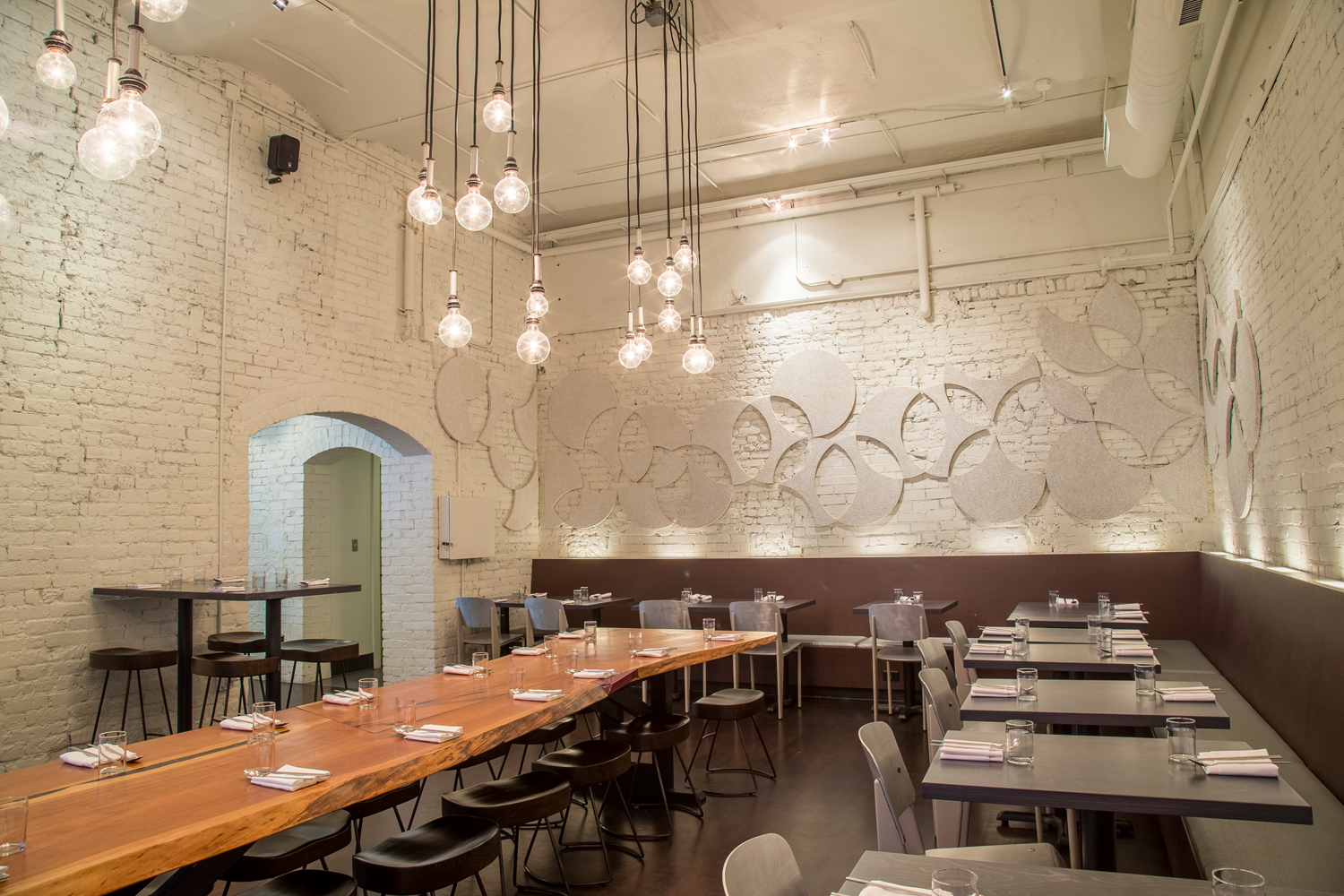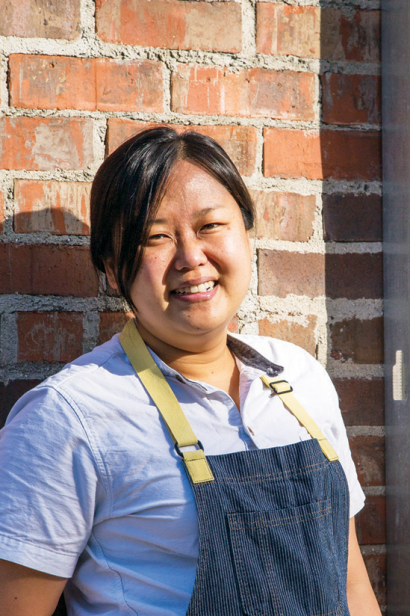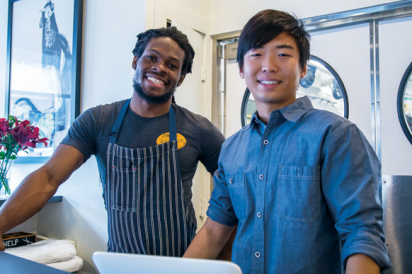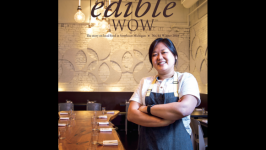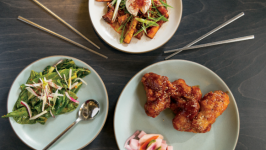Found in Translation: Miss Kim in Ann Arbor
Ji Hye Kim has been breaking rules about food since second grade.
“These little huts outside of school sold these dense rice cakes in a gochujang paste sauce, kind of a saucy stewed rice cake. They’re the favorite afternoon school snack of Korean children,” she says in a rare quite moment between lunch and dinner service at her restaurant, Miss Kim, in Kerrytown, Ann Arbor.
“My mother enrolled me in a program at school where we would get a little box of milk. I would give it to the rice cake lady in exchange for a snack.”
When the school found out—Kim wasn’t the only milk swapper—they banned the practice. But the rice cakes were worth the subterfuge. Kim kept sneaking out to get them—until a schoolmate blackmailed her. “He said if I’d do his penmanship homework, he would keep his mouth shut. So I had a choice: Be honorable. Or eat my rice cakes.”
The rice cakes won.
Over time, Kim’s tastes have evolved from the soupy texture of the original to a skewered version, deep-fried with a crispy outside and pillowy interior, on the Miss Kim menu. It’s a document that is in itself a personal journey through Korean food.
Naturally, it starts with kimchi, the fermented probiotic Korean condiment.
“We lived in an older-style house. It was square, with rooms built around open courtyard. All of our relatives were in walking distance, and they would all get together in the fall and make the kimchi for the year. I remember oceans and oceans of chili flakes, Mom wondering if she should get 50 or 100 heads of cabbage, and a crock so big that I could fit inside of it.”
When the family moved to New Jersey during Kim’s adolescence, they worked hard to keep traditions alive. That meant dumplings for the New Year and kimchi every fall. “A lot of these things are very communal, so our extended family and neighborhood were all part of it,” she says. “Mom insisted on making kimchi from scratch after working 16 hours.”
But having a mother who cooked everything from scratch does not automatically qualify one to open a restaurant. Following graduation from UMich, Kim returned to New Jersey and a career in the hospital industry. Meanwhile, her husband was located in Ann Arbor. When she decided to join him, she applied to three different area employers, who all contacted her.
In a sharp right turn on her resume, she turned down high-paying gigs in favor of an apprenticeship at Zingerman’s.
“I had to ask myself, ‘If I was going to work 70 hours a week, how did I want to spend it?’ ” Her passion for food won—“from hospital to hospitality,” she says with a laugh—and the path to her own restaurant began in earnest.
She worked her way around the Zing’s organization, from the deli counter into management. And she began to discuss her vision for serving Korean food to the community with Zing founders Paul Saginaw and Ari Weinzweig. They encouraged her to start small, which translated to San Street, a wildly popular stop at Mark’s Carts offering pan-Asian treats.
When the time was right to expand to a bricks-and-mortar store, Kim broadened her experience even more. She worked for three weeks with Chef Hooni Kim in his renowned NYC restaurant, Hanjan. She added to her extensive collection of Korean cookbooks. She visited Korea multiple times, finding over 200 types of documented kimchi.
“In Korea, nothing is set as far as food influences go,” says Kim. “I’ve heard a lot of people here say that Korean cuisine does not use cilantro, but in one area I visited, they did. Other people insist that Korean cuisine has no dairy. Well, I found a recipe that tells you to boil ocean water with milk until it curdles. It’s very similar to ricotta.”
She’s careful to make an important distinction between tradition and authenticity.
“I can’t compete with someone’s authentic experience. To me, it’s the tradition and the intention of a dish. Like with kimchi, what’s important is the idea of preservation and what’s available in season. If my grandma were here, she would never pay double to triple the amount for a certain ingredient, especially if it has to be shipped in, because then it’s not going to be in top condition.”
That reasoning informs the restaurant’s dedication to working with seasonal produce sourced from local farms.
It’s all served up in the former Eve restaurant in Kerrytown, where white walls and minimal furnishings provide a serene environment that never distracts from the complex flavors and textures of the menu. Diners are encouraged to order several small plates between them and share.
“I like to think of Korean cuisine as having a lot of faith in the diner,” says Kim. “It’s very DIY food, and I find it very communal.”
And Miss Kim’s no-tipping policy fosters a collaborative, relaxed atmosphere. “It’s a very equitable approach,” says manager Amos Arinda. “The tip model is really unstable. Here, you’re always paid the same, so it takes the competitive element out, and results in a lot of staff camaraderie.”
It’s the culmination of the process of Kim putting “my wishes and dreams and vision out there.” Now they’re coming true in this place where she shares the food she loves with a community that loves it right back.
Not bad for a second-grade rebel.
Learn more at MissKimAnnArbor.com


